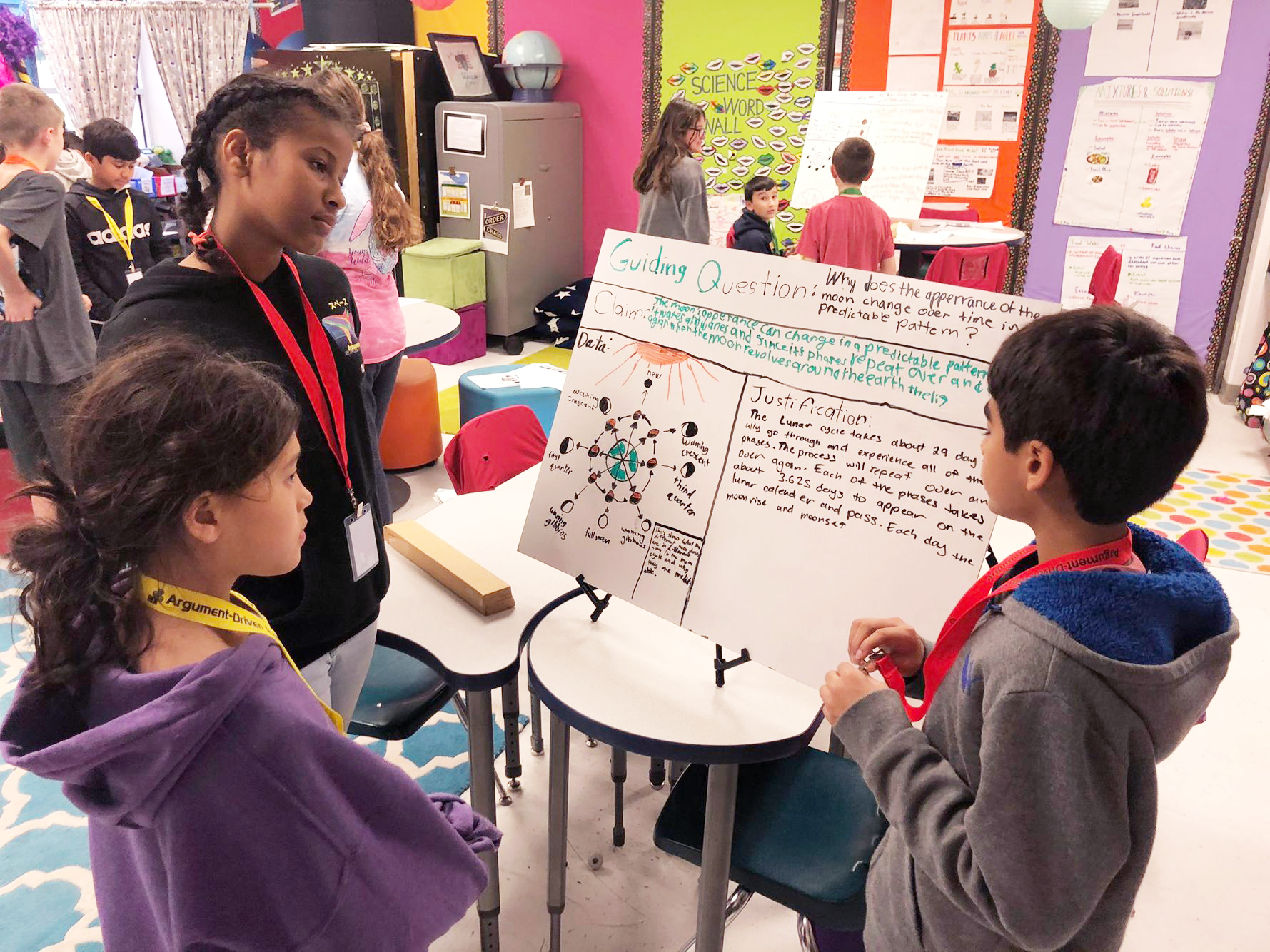
Science
Our science program includes instructional materials, hands-on kits, classroom resources, and professional learning experiences for teachers.
Some Key Features of Argument-Driven Inquiry in Science
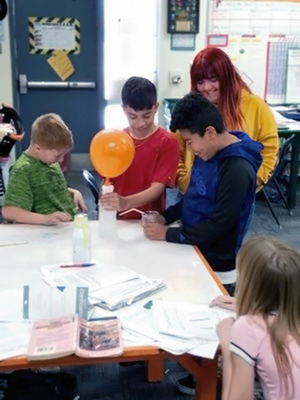
Figuring Out Phenomena
All our investigations require students to figure out a phenomenon. A phenomenon is an event in the world that requires us to explain how or why it happens. A phenomenon grounds student learning in a common experience and then uses that experience to feed student curiosity over time. The phenomena make our investigations meaningful and interesting for students.
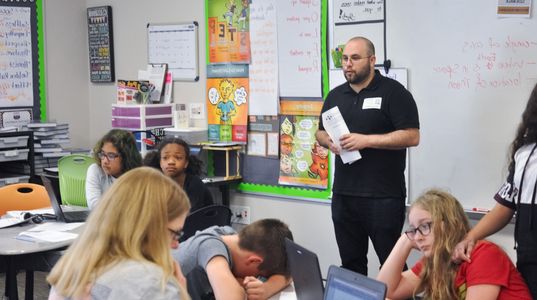
Use of Core Ideas, Crosscutting Concepts, and the Practices of Science
- All our science investigations are designed so students must use the ideas and practices of science to figure out how or why something happens. Instead of telling students what they need to know and requiring them to memorize science terms, students are introduced to new ideas as they are needed and then encouraged to use these ideas and the practices of science, along with their own ideas, as tools to make sense of the world around them.
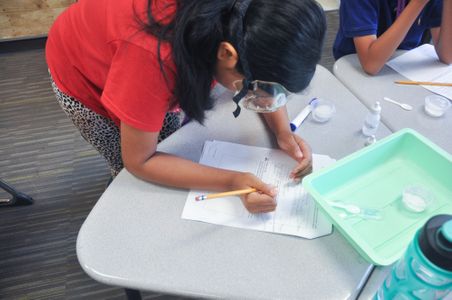
Use of Literacy and Math Practices in the Service of Sense-Making
Our science investigations give students an authentic context to use and develop disciplinary-based literacy practices because they read to obtain and evaluate information, talk to communicate, critique, and refine ideas, and write to share what they figured out. These investigations also give students opportunities to use mathematical practices and thinking.
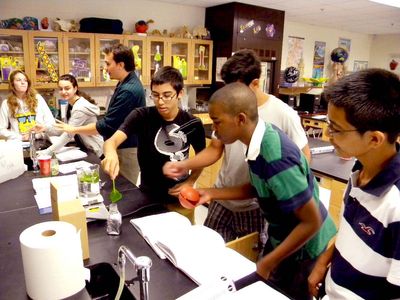
Equitable by Design
Our investigations are designed to provide all students with a fair opportunity to learn the ideas and practices of science and how to use these ideas and practice to make sense of the world. They are also designed to help every student feel like their ideas are useful and their participation is valued because they have unique life experiences and ways of talking or thinking. Our goal is to help all students see themselves as knowers and doers of science.
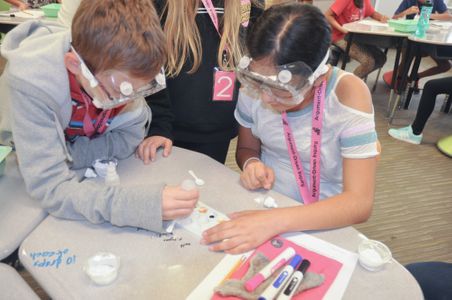
All Investigations Stress Collaboration and are Highly Interactive
Students are collaborators who work together as a community to figure something out about the natural world during an investigation. They are encouraged to examine their peers’ ideas and to consider how to use those ideas to make sense of what they are seeing or doing. Students give each other feedback and help each other improve.
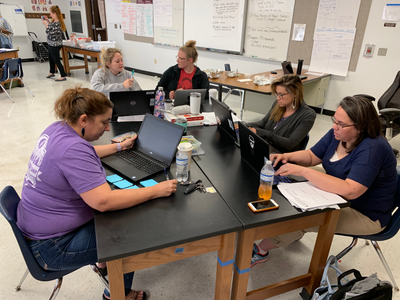
Research-Based and Standards Aligned
We use the Argument-Driven Inquiry instructional model to create all our investigations. This way of teaching was developed and tested through classroom-based research and then refined over time based on feedback from teachers. We also align each investigation with the NGSS and other state standards so teachers can make informed decisions about how to use them.

Easy to Integrate into any Curriculum
Our instructional materials are designed to supplement rather than replace an existing science curriculum. Teachers can add one of our investigations to a unit to give students an opportunity to actually use the core ideas they are learning about, or they can use one of our investigations to replace a lesson in a unit that is not well aligned with a key standard. These investigations can also be used as a stand-alone learning experience that takes place in-between units to address any topic that is not really addressed in the current curriculum or after a unit to give students another opportunity to learn a core idea in a meaningful, rigorous, and equitable way.

Check out an Investigation
Download an example investigation and other useful instructional tools.
Videos
Watch some of our videos to see what an investigation looks like.

Hands-on Kits
Investigation kits include all the hands-on materials that students need.

Classroom Resources
We have whiteboards, easels, posters, and other resources available.

Instructional Materials
The ADI Learning Hub includes a growing library of science investigations.

The ADI Instructional Model
We use the ADI instructional model to create all of our science investigations.
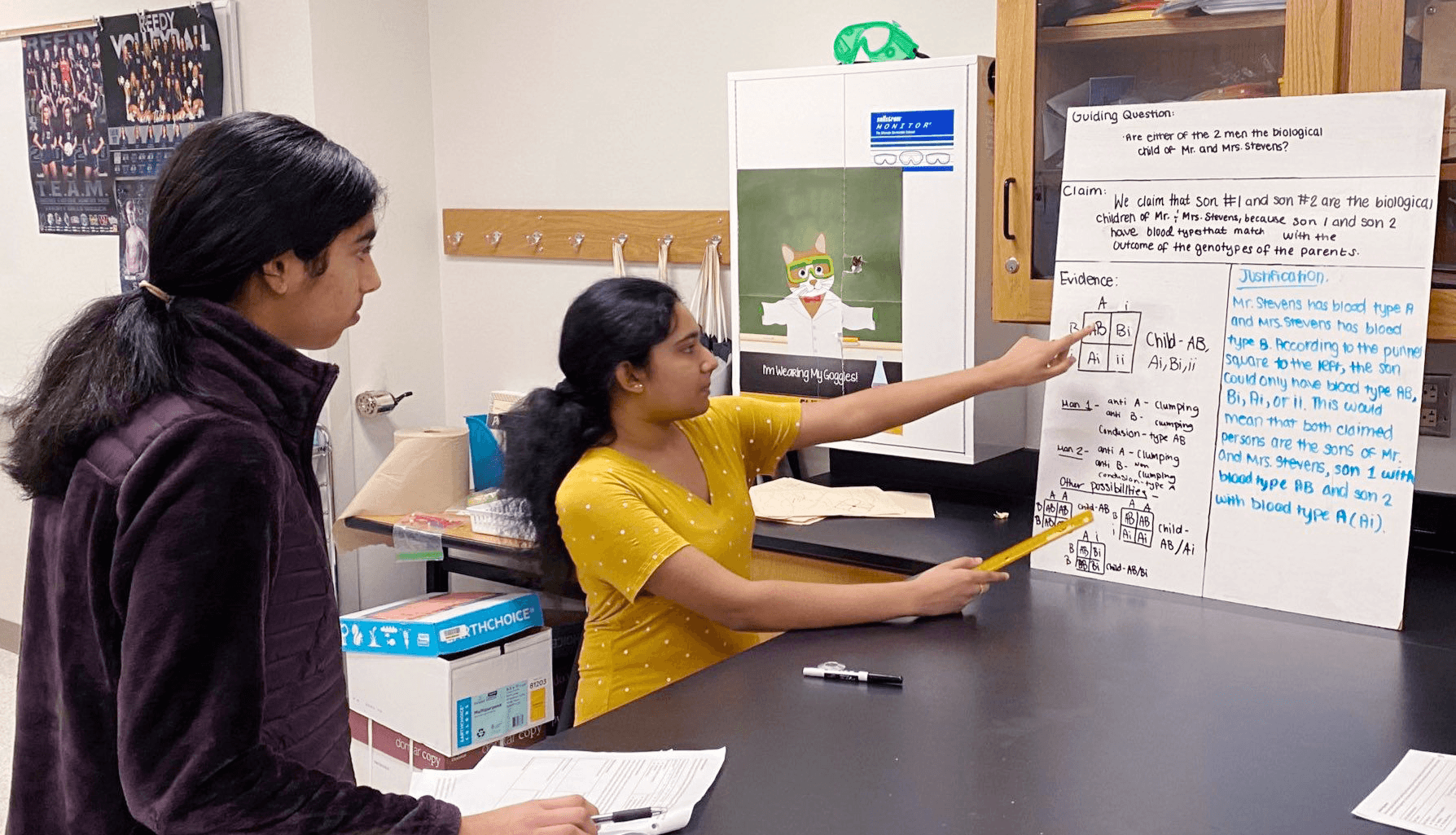
Ready to make a change?
Set up a meeting with one of our program specialists to learn more about how you can use Argument-Driven Inquiry to make the teaching and learning of science in your district or school more meaningful, rigorous, and equitable.
